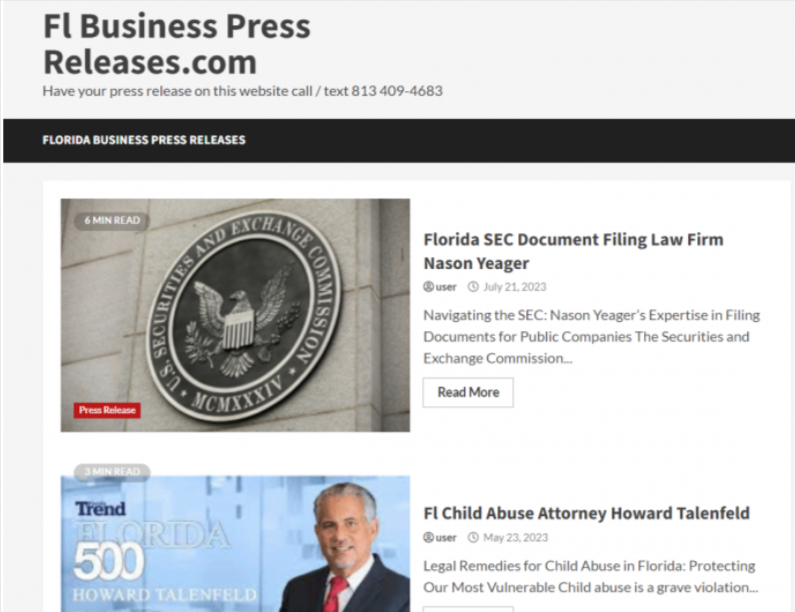Traumatic Brain Injuries in Children: A Critical Concern in Florida
Traumatic brain injuries (TBIs) in children represent a significant public health issue, with potentially lifelong consequences. In Florida, a state known for its vibrant outdoor activities and sports culture, the risk of TBIs in children is of particular concern. This article delves into the prevalence, causes, and impacts of traumatic brain injuries in children in Florida, shedding light on the steps taken by the state to mitigate this critical issue.
Florida Child Welfare Injury Law Firm
Prevalence of Traumatic Brain Injuries
Florida, with its year-round warm climate and extensive coastline, is a hub for outdoor activities like biking, skateboarding, water sports, and team sports. Unfortunately, these activities also contribute to a higher incidence of traumatic brain injuries among children. According to the Florida Department of Health, approximately X children are diagnosed with TBIs each year, making it a pressing concern for healthcare professionals, educators, and parents alike.
Causes of TBIs in Children
- Several factors contribute to the occurrence of traumatic brain injuries in Florida’s children:
- Sports and Recreational Activities: Florida’s sports culture, coupled with its inviting climate, encourages children to participate in various physical activities. High-contact sports like football, soccer, and hockey, as well as activities like skateboarding and biking, increase the risk of TBIs.
- Motor Vehicle Accidents: Florida’s extensive road network and high population density lead to a higher number of motor vehicle accidents. Children involved in car crashes are at risk of sustaining head injuries.
- Falls: Falls are a common cause of TBIs in children. Florida’s numerous parks, playgrounds, and theme parks provide ample opportunities for falls from heights.
- Abuse and Neglect: Sadly, cases of child abuse and neglect can lead to traumatic brain injuries. Identifying and addressing these cases promptly is crucial for preventing further harm.
Florida Child Brain Injury Law Firm with Howard Talenfeld
Long-term Impact of TBIs
The consequences of TBIs in children can be far-reaching and include:
Cognitive Impairments: Depending on the severity of the injury, children may experience difficulties with memory, attention, and problem-solving skills.
Emotional and Behavioral Changes: TBIs can lead to mood swings, aggression, anxiety, and depression. Children may struggle with impulse control and social interactions.
Academic Challenges: Cognitive deficits can impact a child’s ability to learn, leading to academic struggles that may persist into adulthood.
Physical Disabilities: Severe TBIs can result in motor impairments, affecting a child’s ability to move, coordinate, or perform daily activities.
Florida child head injury death law firm
Preventive Measures and Support Systems
Recognizing the critical nature of traumatic brain injuries in children, Florida has implemented various preventive measures and support systems:
Education and Awareness Campaigns: The state conducts campaigns to educate parents, caregivers, and educators about the risks of TBIs and the importance of preventive measures.
Helmet Laws: Florida enforces helmet laws for various activities, including biking and skateboarding, aiming to reduce the severity of head injuries in case of accidents.
Florida TBI Law Firm for Children
Concussion Protocols: Schools and sports organizations have implemented strict concussion protocols to ensure that children receive proper medical attention and adequate time for recovery after a head injury.
Rehabilitation Services: Florida boasts a network of rehabilitation centers and healthcare professionals specializing in pediatric traumatic brain injuries, providing essential support for affected children and their families.
Traumatic brain injuries in children represent a significant concern in Florida due to the state’s active outdoor culture. Understanding the causes, long-term impacts, and preventive measures is crucial for safeguarding the well-being of Florida’s young population. By implementing and maintaining strict safety measures, as well as providing comprehensive support systems, the state is taking proactive steps towards mitigating the effects of TBIs on its children.
Ongoing Research and Innovation
Florida is home to several renowned medical institutions and research centers that are at the forefront of TBI research. These institutions work tirelessly to advance our understanding of traumatic brain injuries, develop innovative treatment modalities, and improve rehabilitation techniques. Cutting-edge technologies such as neuroimaging and virtual reality are being employed to enhance diagnosis and treatment outcomes.
Collaborative Efforts with Community Organizations
Numerous community organizations and advocacy groups in Florida are dedicated to raising awareness about TBIs and providing crucial support for affected children and their families. These organizations offer resources, counseling, and educational programs aimed at both prevention and rehabilitation. By collaborating with these groups, the state amplifies its efforts to combat this critical issue.
The Role of Schools and Educators
Florida’s educational system plays a vital role in TBI prevention and management. Teachers and school staff are often the first to notice signs of a potential head injury. As such, there is an emphasis on providing training for educators to recognize and respond to possible TBIs promptly. Additionally, schools work in tandem with healthcare providers to ensure a smooth transition back into the academic environment for children recovering from TBIs.
Florida disabled child injury law firm
Addressing Socioeconomic Disparities
It’s important to acknowledge that not all children in Florida have equal access to resources for TBI prevention and treatment. Low-income communities may face additional challenges in terms of access to quality healthcare, educational resources, and safe recreational spaces. Addressing these socioeconomic disparities is a crucial step in ensuring that every child in Florida receives the support they need to prevent and recover from TBIs.
Parental Involvement and Empowerment
Parents and caregivers play a central role in TBI prevention. Florida encourages parental involvement through workshops, informational sessions, and community events. These initiatives empower parents with knowledge about the risks associated with various activities and equip them with the tools needed to implement safety measures at home and in their communities.
Florida Child Catastrophic Injury Law Firm
A Holistic Approach to TBI Prevention and Recovery
In addressing traumatic brain injuries in children, Florida adopts a multi-faceted approach that encompasses education, legislation, research, community engagement, and healthcare services. By combining these efforts, the state endeavors to create an environment where children can thrive safely, free from the devastating effects of TBIs. Through ongoing commitment and collaboration, Florida is setting an example for proactive TBI management on a national scale.


 Florida PR News...5 years ago
Florida PR News...5 years ago





